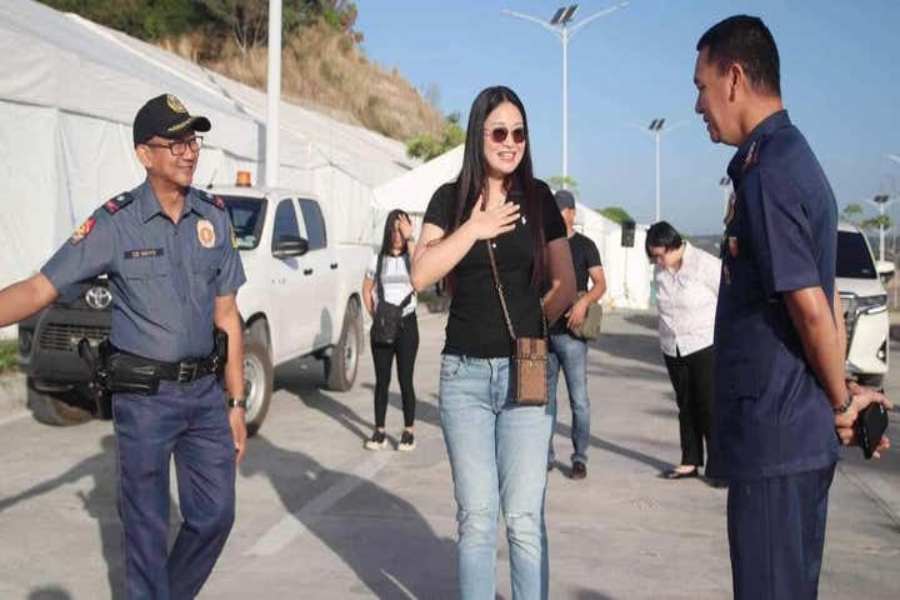
In the picturesque yet inconspicuous town of Bamban, Philippines, the quiet pace of life has been abruptly disrupted by a storm of controversy swirling around its mayor, Alice Guo.
At the center of national attention, the 35-year-old mayor faces severe accusations of espionage, purportedly acting as a Chinese asset amidst the Philippines’ increasingly tense territorial disputes with China. This situation casts a shadow over her administration and raises profound questions about foreign influence in local Philippine politics.
The controversy first unfolded when law enforcement agencies raided in March on a local establishment that was ostensibly a Philippine Offshore Gambling Operator (POGO). The operation revealed that the casino was a facade for a scam center employing nearly 700 workers, over 200 Chinese nationals.
These employees were coerced into impersonating online lovers in a deceitful scheme known as “pig butchering,” which involves fostering fake romantic relationships to swindle money from unsuspecting victims.
The scandal deepened with the revelation that Mayor Guo owned significant portions of the land where the casino operated. While Guo asserted that she sold the property two years ago before her mayoral run, her claim has done little to dispel the suspicion hovering over her.
Adding to the intrigue, Philippine President Ferdinand Marcos Jr. has openly expressed concerns regarding Guo’s origins and citizenship, sparking an official investigation in collaboration with the Bureau of Immigration. “The mystery surrounding her sudden rise in politics is unsettling. We must address these concerns to maintain public trust in our governmental institutions,” stated Marcos during a press conference.
During a tense Senate hearing, Guo tried to clarify her background, discussing her upbringing on a pig farm and the late registration of her birth certificate at the age of 17. She described her unconventional education, being homeschooled in a family compound, which did not alleviate the senators’ suspicions but intensified them. Senator Risa Hontiveros questioned whether Guo had been strategically placed as a “Chinese asset.”
Given the timing of Guo’s entry into politics amidst escalating geopolitical tensions between China and the Philippines over the South China Sea, this suspicion is not unfounded. The region has seen a series of confrontations, particularly near the Second Thomas Shoal, where the Chinese Coast Guard has aggressively used water cannons and military-grade lasers against Filipino fishermen. These maritime disputes highlight a more significant battle for control over resource-rich waters, with China’s expansive territorial claims repeatedly clashing with its neighbors.
In her defense, Guo vehemently denied any affiliations with the POGO operations or foreign entities that could compromise her allegiance to the Philippines. “I have no connections that would undermine my commitment to my country,” she insisted in the hearing. However, her past remains murky. The Commission on Elections confirmed that Guo only registered to vote in Bamban in 2021, just a year before she was elected, further complicating her narrative.
As the investigation continues, details about Guo’s life before her political career remain sparse. Her family name, Guo, is unusual in the Philippines and not typically associated with the local Chinese-Filipino community, which has deep-rooted historical connections dating back to centuries of trade and cultural exchange.
]The Senate’s inquiry into her background has unearthed more questions than answers, particularly concerning her familial ties and the sudden disposal of substantial assets, including a helicopter and a Ford Expedition, right before her electoral campaign.
The case of Mayor Alice Guo extends its repercussions beyond the confines of her local constituency in Bamban, casting an enormous shadow over the national stage. As the Philippines grapples with maintaining sovereignty and integrity amidst rising external influences, this controversy highlights the vulnerabilities and challenges facing the nation’s governance systems.
The strategic and economic import of the South China Sea, where geopolitical interests converge and conflict, provides a significant context to Guo’s case, suggesting potential ramifications that resonate throughout Southeast Asia.
The proceedings and outcomes of this investigation are being closely monitored by both residents and the national populace, as they will likely influence the political and security strategies of the Philippines in dealing with similar cases in the future. Should Guo be found to have substantiated ties with foreign entities, it could precipitate a shift in policy and enforcement concerning foreign involvement in local politics.
This situation serves as a litmus test for the country’s legal and political frameworks, challenging them to effectively address and mitigate the risks of espionage and foreign manipulation in a world where international relations are ever more fraught with tension and competition.
In this complex tapestry of local grievances and international rivalries, the resolution of Alice Guo’s case is not merely about one mayor’s career but a critical moment of reckoning for the nation.
It embodies the broader struggle to maintain national integrity against the backdrop of global dynamics, setting a precedent that will likely shape the Philippines’ approach to sovereignty and international diplomacy for years to come.








